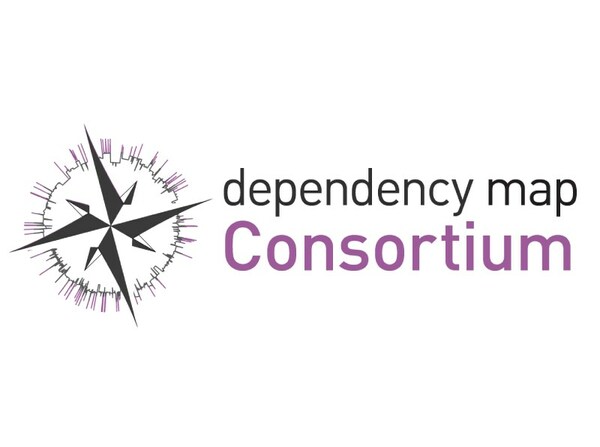预约演示
Cancer Dependency Map Consortium accelerates research into tumor vulnerabilities
2023-01-18
Academic-industrial collaboration, now with 19 industry members, expands efforts to identify new cancer targets
/PRNewswire/ -- The Broad Institute's Cancer Dependency Map Consortium, an academic-industrial partnership program that was first announced in 2019, is accelerating its research into tumor vulnerabilities and identifying key biomarkers. As the consortium enters a new phase, a total of 19 pharmaceutical and biotechnology organizations are partnering in this project.
Continue Reading

Preview
来源: PRNewswire
Academic-industrial collaboration expands efforts to identify new cancer targets
The Cancer Dependency Map Consortium supports the Broad's Cancer Dependency Map (DepMap) initiative which aims to accelerate precision cancer medicine by creating a comprehensive map of tumor vulnerabilities. DepMap is using large-scale functional genomics and PRISM therapeutic agent response profiling across large panels of cancer models to create a systematic overview — or "map" — of the genetic dependencies and compound sensitivities of each type of cancer and the predictive biomarkers that point to patient populations most likely to benefit.
"The renewed commitment from the DepMap Consortium demonstrates the deep and sustained collaborative alignment of our partners with Broad scientists as they deploy cutting edge functional genomic tools towards the goal of enabling community wide identification of the best therapeutic targets for cancer patients," said William Sellers, core institute member at the Broad and director of the institute's Cancer Program.
DepMap Consortium (DMC) industry partners are:
Genentech, a member of the Roche Group
[email protected]
Servier
Over the last three years, the DepMap Consortium has collaborated to develop the most comprehensive resource to identify cancer vulnerabilities by creating datasets at scale, cutting-edge computational tools, and more sophisticated visualization tools that together have accelerated the discovery of novel targets and biomarkers.
Although the DepMap resource has provided much value to the consortium and the larger scientific community, additional work remains to comprehensively identify vulnerabilities across cancer. Our new strategic plan will tackle this by expanding DepMap in new areas.
The newest iteration of the DepMap consortium will expand to include underrepresented genotypes, rare cancers and 3D patient-derived models. The research will incorporate new perturbations, such as combinatorial CRISPR screens and screening of biologics, as well as new omics profiling modalities. Novel machine learning methods and improved computational pipelines will be developed towards the goal to exploit the data for the discovery of new therapeutic opportunities.
"I'm delighted about what the consortium has accomplished and the amazing infrastructure we have developed in the past three years," said Francisca Vazquez, director of the Cancer Dependency Map Project at the Broad Institute. "We have just scratched the surface, however, and I am excited for this next phase of the project, where we will use new screening and profiling modalities and accelerate our progress towards the systematic discovery of cancer vulnerabilities."
Consortium partners bring their expertise and perspectives while benefiting from early access to the data, portal and tools and the ability to analyze their proprietary data with DepMap data.
"Working with the Broad Institute as a DepMap Consortium member highlights our ambition for data-driven drug discovery across the Oncology pipeline. The data, tools, and expertise that developed from this partnership had a tangible impact on our cancer research projects, including translational and clinical development aspects for key priority assets," said Jan Nygaard Jensen, Head of Global Computational Biology and Digital Sciences (GCBDS) at Boehringer Ingelheim.
Over the next few years, the DepMap Consortium will focus on new technical development activities aimed at increasing the scale, precision and breadth of the Cancer Dependency Map, setting the stage for the decade ahead.
About Broad Institute of MIT and Harvard
Broad Institute of MIT and Harvard was launched in 2004 to empower this generation of creative scientists to transform medicine. The Broad Institute seeks to describe the molecular components of life and their connections; discover the molecular basis of major human diseases; develop effective new approaches to diagnostics and therapeutics; and disseminate discoveries, tools, methods and data openly to the entire scientific community.
Founded by MIT, Harvard, Harvard-affiliated hospitals, and the visionary Los Angeles philanthropists Eli and Edythe L. Broad, the Broad Institute includes faculty, professional staff and students from throughout the MIT and Harvard biomedical research communities and beyond, with collaborations spanning over a hundred private and public institutions in more than 40 countries worldwide.
SOURCE Broad Institute of MIT and Harvard
更多内容,请访问原始网站
文中所述内容并不反映新药情报库及其所属公司任何意见及观点,如有版权侵扰或错误之处,请及时联系我们,我们会在24小时内配合处理。
适应症
靶点
-药物
-生物医药百科问答
全新生物医药AI Agent 覆盖科研全链路,让突破性发现快人一步
立即开始免费试用!
智慧芽新药情报库是智慧芽专为生命科学人士构建的基于AI的创新药情报平台,助您全方位提升您的研发与决策效率。
立即开始数据试用!
智慧芽新药库数据也通过智慧芽数据服务平台,以API或者数据包形式对外开放,助您更加充分利用智慧芽新药情报信息。





